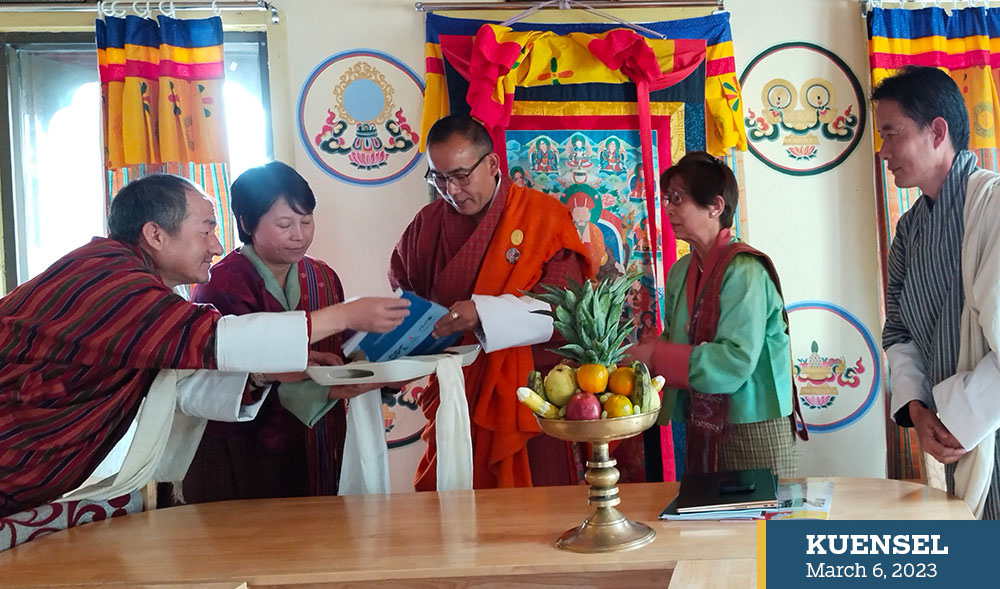YK Poudel
Class III students from high-income families perform better in English and Mathematics than those from low-income families, while both are equally good in Dzongkha literacy according to a study.
The National Education Assessment (NEA) report released on March 4 found that class three students were able to meet the minimum proficiencies level during the pandemic with 84 percent, 90 percent and 93 percent in Dzongkha, English and Mathematical literacy respectively.
There was no significant performance difference between the performance of students from rural areas and urban areas in Dzongkha Reading Literacy. However, there was a significant difference between English Reading Literacy and Mathematical Literacy.
The report states that there was a clear performance difference in English reading literacy and Mathematical literacy with private schools outperforming public schools.
NEA 2021 is the first national assessment, adopting the literacy approach for reporting the learning of students. A total of 4,685 students from 184 schools across the country were assessed by the study.
NEA is a triennial trend study of a sample-based large-scale assessment of students learning at various key stages (grades three, six and nine).
The NEA 2021-2022 found that class three students from higher-income families performed better in English reading literacy and mathematical literacy.
Education and Skills Development Minister Jai Bir Rai said that the report will help Bhutan Council for School Examinations and Assessment (BCSEA) assess and monitor Bhutan’s school education system.
“The report conducted during the pandemic has given us sound data to gauge their knowledge, skills and attitudes across these foundational subjects,” he said, adding that the report would help the government strengthen the existing educational policies, strategies and programmes.
The next report for the same batch will be conducted in 2024 when they reach class six.
“The assessment will be compared to see how things have changed and things that require immediate attention,” the minister said.
Lyonpo said that certain things have been implemented to improve the quality of education. “Bhutan Baccalaureate, which is currently implemented in 13 schools shall be implemented in all the schools. The launch of online teaching-learning materials is another measure. And the country will have better investment in education with assessment system for technical subjects,” he said.
NEA Project Manager from BCSEA, Arjun Kumar Gurung said that the data collected during the pandemic for class three students will help the ministry and other stakeholders in planning the 13th Five-year Plan.
“The report will be immediately disseminated to all the schools and dzongkhags so that the data will help the teachers to go for a better pedagogy,” he said.
“The data will help the principals and DEOs in dzongkhags to come up with solutions to meet the loopholes,” he said.
Data revealed that 52 percent of the class three students missed their classes due to poor health. However, 85 percent of these students were helped by their schools when they were sick.
The findings also reveal that, according to the teachers, the support from parents was less than that from other stakeholders.


